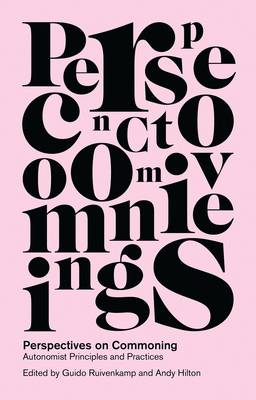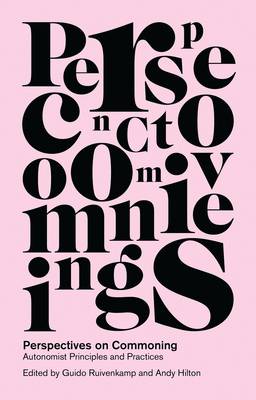
- Afhalen na 1 uur in een winkel met voorraad
- Gratis thuislevering in België vanaf € 30
- Ruim aanbod met 7 miljoen producten
- Afhalen na 1 uur in een winkel met voorraad
- Gratis thuislevering in België vanaf € 30
- Ruim aanbod met 7 miljoen producten
Zoeken
€ 55,95
+ 111 punten
Omschrijving
In the wake of socialism's demise and liberalism's loss of direction, new ideas are needed for the next major realignment of the social and political domain. Making a unique contribution to the idea of 'the commons', this book offers a radical form of direct democracy with real-world implications. But whereas much of the current scholarship has looked at the commons from the perspective of governance, this book instead focuses on 'commoning' as social practice.
Perspectives on Commoning argues that the commons are not just resources external to us, but are a function or characterisation of what we do. Thus, we can talk of the act of commoning, positioning our behaviour beyond the domains of the private and the public, beyond the dichotomy of capitalism versus socialism.
Covering everything from biopolitics to urban spaces, this impressive range of international contributors address the commons as both theory and history, providing a useful review of current conceptions as well as practical proposals for the future. A unique consolidation of philosophy, sociology and economics, the book shows how a new understanding of the commons as practice will help to achieve its full emancipatory potential.
Perspectives on Commoning argues that the commons are not just resources external to us, but are a function or characterisation of what we do. Thus, we can talk of the act of commoning, positioning our behaviour beyond the domains of the private and the public, beyond the dichotomy of capitalism versus socialism.
Covering everything from biopolitics to urban spaces, this impressive range of international contributors address the commons as both theory and history, providing a useful review of current conceptions as well as practical proposals for the future. A unique consolidation of philosophy, sociology and economics, the book shows how a new understanding of the commons as practice will help to achieve its full emancipatory potential.
Alleen bij Standaard Boekhandel
+ 111 punten op je klantenkaart van Standaard Boekhandel
Beoordelingen
We publiceren alleen reviews die voldoen aan de voorwaarden voor reviews. Bekijk onze voorwaarden voor reviews.








